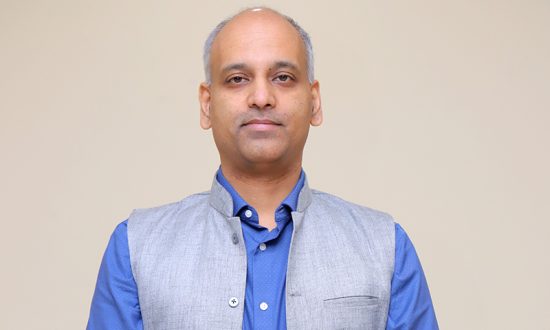Dr. (Prof) Nigam Nuggehalli is the Dean at the School of Law at BML Munjal University. He holds a DPhil from the University of Oxford Faculty of Law, an LLM in Taxation from New York University and a BA., LLB (Hons.) from the National Law School of India University. As a lawyer and as a law academic, Professor Nuggehalli has practiced and taught a variety of legal subjects (contracts, commercial law, corporate law, taxation) with reference to the legal regimes in the United States, the United Kingdom, and India. He has extensive research and publication experience in legal issues relating to international taxation, commercial law, and statutory interpretation.
How has the Education System changed over time?
The education system has become more about students learning stuff rather than teachers teaching stuff. When the education system focusses on what teachers do, it makes the students passive participants in the learning process. When instead, the focus is on student learning, the students are active learners in the system with two consequences: the emphasis is on what the students need to do in order to learn better and there is also at the same time the acknowledgment that student-focused learning can and must include some level of customization because every student is different. On the latter point, many universities already follow some level of customization whether they label it as such or not. For example, a project assignment in any course is a nod to customization because it encourages a student to address academic issues through the vantage point of a topic that he or she has chosen.
How innovative is the New-Age Education System?
I suppose we must ask first what we understand by the new age education system. I think by this term we mean a system that engages with students through means that manage to capture their attention and makes optimum use of their abilities. Further, it is a system that imparts knowledge that is more attuned to contemporary times and harnesses technology’s benefits in both curriculum delivery and in assessments. From this perspective, there have been some innovations such as the seminar and clinical systems of teaching that are more experiential and student-focused but overall there isn’t as much innovation as there should be. For example, I think we need a lot more audio and video engagement in teaching than what is going on now. There continues to be an emphasis on classroom teaching which is inimical both to how students learn and what they learn. Sitting for hours in a packed classroom can make even the most diligent student disengaged from the subject. But that’s not the only problem. A course that is heavily dependent on classroom teaching is then depriving itself of other means (through, for example, field visits) of imparting knowledge and skills to students.
Can you elaborate on the importance of an Interdisciplinary Approach in Teaching?
The interdisciplinary approach relies on two insights into the education curriculum and pedagogy. First, knowledge is holistic. One can’t obtain a comprehensive understanding of the law on cybersecurity unless one becomes acquainted with cyber technology, the globalized economy, regulation theory, and criminal law. A law student has to traverse beyond an understanding of a particular branch of law to better understand that branch of the law. Second, students must learn how to apply what they have learned to unfamiliar situations. They can’t learn this important skill unless they learn to make interconnections between different domains of knowledge. A student who has learned urban building codes cannot apply her knowledge to Gurugram municipality licensing regulations unless she has already learned how to synthesize together information from various domains such as the law, building codes, urban design, and licensing regulations.
How is Experiential Learning impacting Students?
Experiential learning, i.e learning that exposes students to the real-world environment or simulates the real-world experience enables the students to acquire three important skills: it makes them good at applying the information that they have acquired (described in my reply to the previous question), it forces them to communicate better in written and oral form because in the real world the communication of ideas is as important as the ideas themselves, and it makes the students more effective, ie the students understand what it takes to work towards the fulfillment of key goals in imperfect conditions.
What old practices can be inculcated into the New-Age Education System?
There is one grain of truth in the tedium of the old educational practices: practice, practice, and more practice. For any skill to be honed to an adequate level of competence, one needs an effective loop of practice and feedback. The older educational systems, through their insistence on a treadmill of assessments, made sure that students gained something through repetitive assessments. But these assessments relied far too much on rote learning and were of limited value. However, assessments that demand creativity and application will benefit from being repeated because students will become skilled at tasks only through practice.
What steps can be taken to leverage Technology in the Education System?
Technology is exciting for education because it can make learning fun, assessments more targeted, and feedback more productive. Universities must experiment with podcasts and 3-D video recordings. I think a major game-changer would be improved video technology that enables students to interact with and not merely watch or listen to professionals from across the world. This would strengthen the experiential part of university learning. Improved analytics would enable teachers to understand whether assessments have achieved the learning outcome of the courses that they have taught. The feedback that harnesses technology in such a way that the students are able to receive both peer and tutor feedback on a real-time basis would enhance the learning experience for students.




